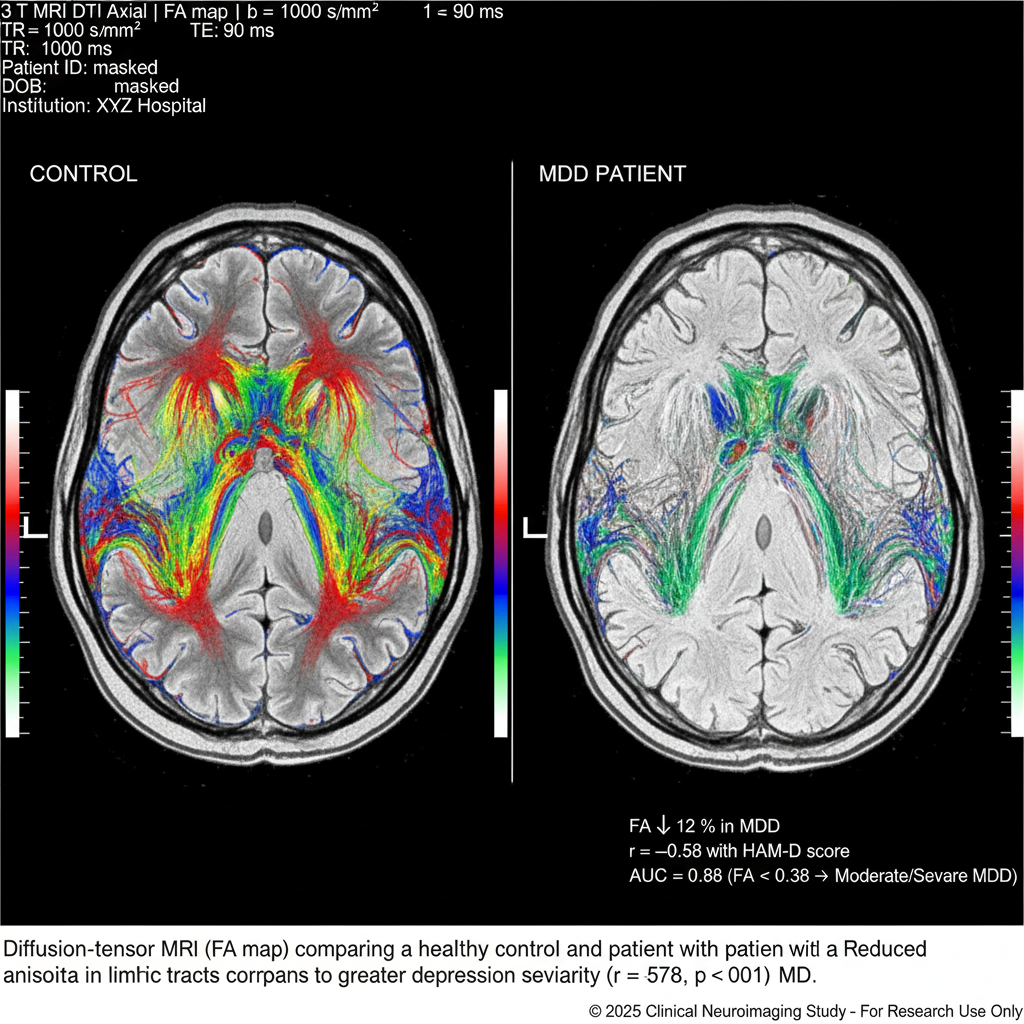Shadows of the Mind: Quantitative MRI Markers of White Matter Integrity and Depression Severity
Anna Fischer¹ , Hugo Moreau² , Léa Fontaine³ , Giulia Ferrara⁴
Keywords:
MRI, Diffusion Tensor Imaging, Depression, White Matter, Neuroimaging Biomarkers, RadiologyAbstract
Background:
Major depressive disorder (MDD) is a highly prevalent psychiatric illness with complex neurobiological underpinnings. Increasing evidence suggests that MDD is linked to microstructural alterations in white-matter tracts, yet the quantitative neuroimaging correlates of depression severity remain insufficiently explored. Diffusion tensor imaging (DTI) provides a sensitive tool for assessing white-matter integrity through parameters such as fractional anisotropy (FA) and mean diffusivity (MD), which may serve as objective biomarkers of disease burden.
Objective:
This study aimed to evaluate DTI-derived FA and MD metrics as potential indicators of depression severity in patients with MDD compared with healthy controls.
Methods:
A total of 262 adults diagnosed with MDD and 120 age- and sex-matched healthy controls underwent 3-Tesla MRI scanning. FA and MD values were computed for major prefrontal and limbic white-matter tracts, including the cingulum, corpus callosum, and uncinate fasciculus. Depression severity was assessed using the Hamilton Depression Rating Scale (HAM-D). Correlations between imaging parameters and clinical scores were analyzed using Pearson’s coefficients and receiver-operating-characteristic (ROC) analysis.
Results:
MDD participants exhibited a 12% reduction in mean FA values compared with controls (0.37 ± 0.04 vs 0.42 ± 0.03; p < 0.001), particularly within fronto-limbic circuits. FA values were inversely correlated with HAM-D scores (r = –0.58; p < 0.001), while MD was elevated by 9% in patients with severe depression. ROC analysis demonstrated high discriminative accuracy (AUC = 0.88; 95% CI 0.84–0.91), identifying FA < 0.38 as a threshold for moderate-to-severe MDD.
Conclusion:
Quantitative MRI using DTI detects subtle but clinically significant disruptions in white-matter integrity associated with depression severity. These findings support the potential use of DTI-based biomarkers for objective monitoring of disease progression and treatment response in MDD.
Downloads





